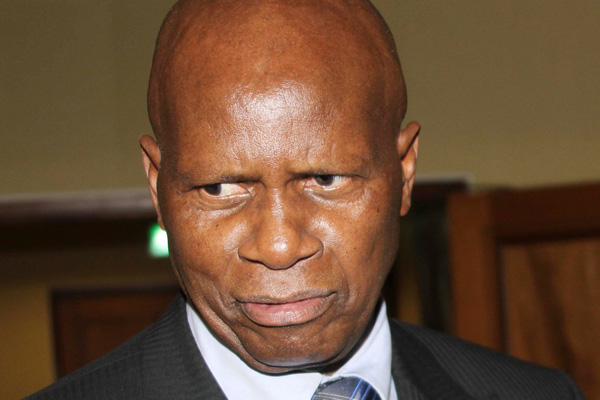
The government should stop unbudgeted expenditure because it makes domestic borrowing very expensive for local industry and leads to productivity constraints as well as lack of competitiveness, analysts have said.
BY MTHANDAZO NYONI
According to the 2016 annual budget review, government incurred unbudgeted expenditure of $134 million, with some of the money going towards recapitalisation of the Cotton Company of Zimbabwe ($30,5m), Agribank ($30m), ZB Bank ($20m), POSB ($20m), IDBZ ($18,7m); and the Small and Medium Enterprises Development Corporation ($15m).
Of the $2,1 billion worth of treasury bills and bonds issued in 2016, only $356,3 million went towards financing the budget deficit, while $1,7 billion was directed towards honouring an outstanding legacy debt.
Economic analysts who spoke to Standardbusiness last week said failure to contain the budget deficit and borrowing had serious economic and financial implications, especially when support to development expenditure remained insignificant.
“The main effects of unbudgeted expenditure and parastatal debt assumption by government include the fact that it becomes difficult to control the expenditure, leading to the crowding out of the private sector from domestic financing arrangements,” said economic and policy analyst, Butler Tambo.
“This has the effect of making domestic borrowing very expensive for local industry as they would now have to compete with the government for the limited finance available on the market.
“This in turn leads to productivity constraints and lack of competitiveness by local industry whose goods become more expensive relative to regional pricing models.
- Chamisa under fire over US$120K donation
- Mavhunga puts DeMbare into Chibuku quarterfinals
- Pension funds bet on Cabora Bassa oilfields
- Councils defy govt fire tender directive
Keep Reading
“Ultimately, this makes it cheaper to import goods than produce them locally.”
The result, he said, is that the country’s import bill becomes much larger than the value of its exports, leading to massive de-industrialisation and job losses as well as loss of revenue for the government.
He said Finance minister Patrick Chinamasa and Parliament should stop assuming parastatal debts willy-nilly as well as doling out large funds to non-performing entities.
Such behaviour, he said, further burdened an already over-taxed citizenry.
“There should instead be restructuring of most parastatals, giving top managers’ performance-based contracts while getting rid of poor performers,” he said.
“Some of the loss making entities should be privatised in order to cut on their loss-making records, or at least technical partnerships should be considered for resuscitating those parastatals that still have potential to generate income and revenue, like the Cold Storage Commission and National Railways of Zimbabwe”.
Economist John Robertson said unbudgeted expenditure increased the budget deficit and to close the gap, government had to borrow.
“This will then crowd out the business sector,” Robertson said.
However, Reginald Shoko, an economist said proper utilisation of the unbudgeted expenditures could be progressive, especially if the funds were used to increase production and retooling of industry.
“The economy will benefit from such a move but if one analyses [what has been happening with our unbudgeted expenditure], the funds have been allocated mostly to banks when the banking sector is suffering from serious non-performing loan books and low confidence levels from the general public. In any case, most of the money will be borrowed by senior government officials and in most cases put to wrong use,” Shoko said.
“In the short term, there is no benefit for the economy from unbudgeted expenditure beside increasing pressure on the tax collector to push for more collections to cover the deficit. It’s uneconomical for a country like ours.”
Shoko said Chinamasa should utilise the unbudgeted expenditure for improving the production capacities of the economy and retooling industry, especially the export- driven industries.
But Chinamasa has defended government’s unbudgeted expenditure saying it was stable.
“The expenditure is stable. It’s very near the budget. But even at that level that we have tried to maintain, it is still skewed very much in favour of wages and the current expenditure and nothing or very little is left for operations and services delivery and infrastructure,” he said.
“Something like 55% of revenue should go towards wages and not the way it is now at 91%.”











